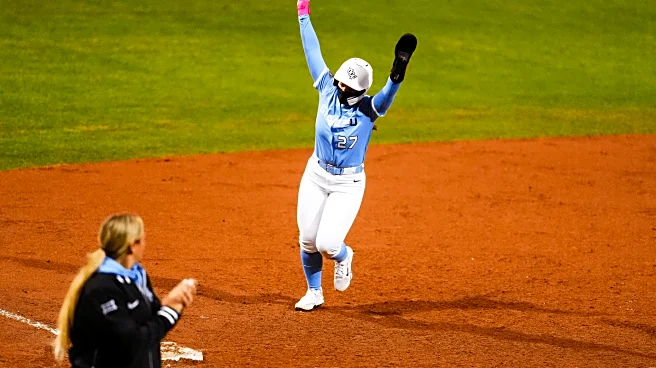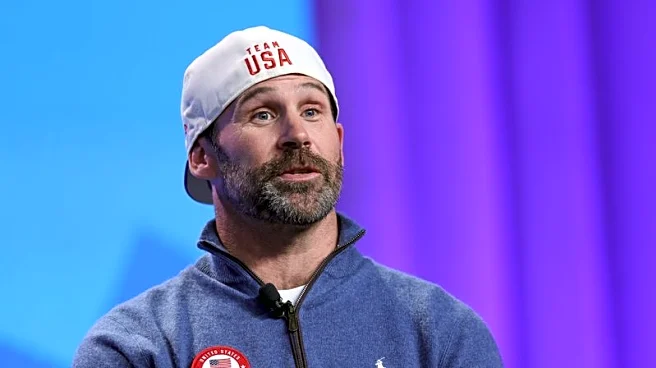What's Happening?
A new app called diVine has been launched, reminiscent of the former Vine platform, which was popular for its six-second video loops. The app is backed by Twitter co-founder Jack Dorsey and aims to bring
back the essence of Vine by including over 100,000 archived Vine videos. Unlike other platforms, diVine restricts the use of generative AI for content creation, emphasizing 'real moments from real humans.' The app is available for download on iOS and Android, and it marks a significant return to the short-form video format that Vine pioneered.
Why It's Important?
The launch of diVine represents a significant shift in the digital content landscape, particularly in the realm of short-form video. By excluding AI-generated content, diVine is positioning itself as a platform for authentic human expression, which could appeal to users seeking genuine interactions. This move may influence other platforms to reconsider their approach to AI content. Additionally, the revival of Vine's format could attract former users and new audiences, potentially impacting the competitive dynamics among social media platforms, especially those focused on video content.
What's Next?
As diVine gains traction, it may prompt other social media platforms to evaluate their content policies, particularly regarding AI-generated material. The app's success could lead to further developments in open-source protocols for social media, as indicated by the involvement of former Twitter employees. Stakeholders in the tech industry will likely monitor diVine's growth and user engagement closely, which could lead to strategic partnerships or innovations in content creation and sharing.
Beyond the Headlines
The exclusion of AI content on diVine raises ethical considerations about the role of AI in creative industries. This decision may spark discussions on the authenticity of digital content and the value of human creativity versus machine-generated material. Long-term, diVine's approach could influence cultural perceptions of AI in media and entertainment, potentially leading to new standards for content authenticity.











